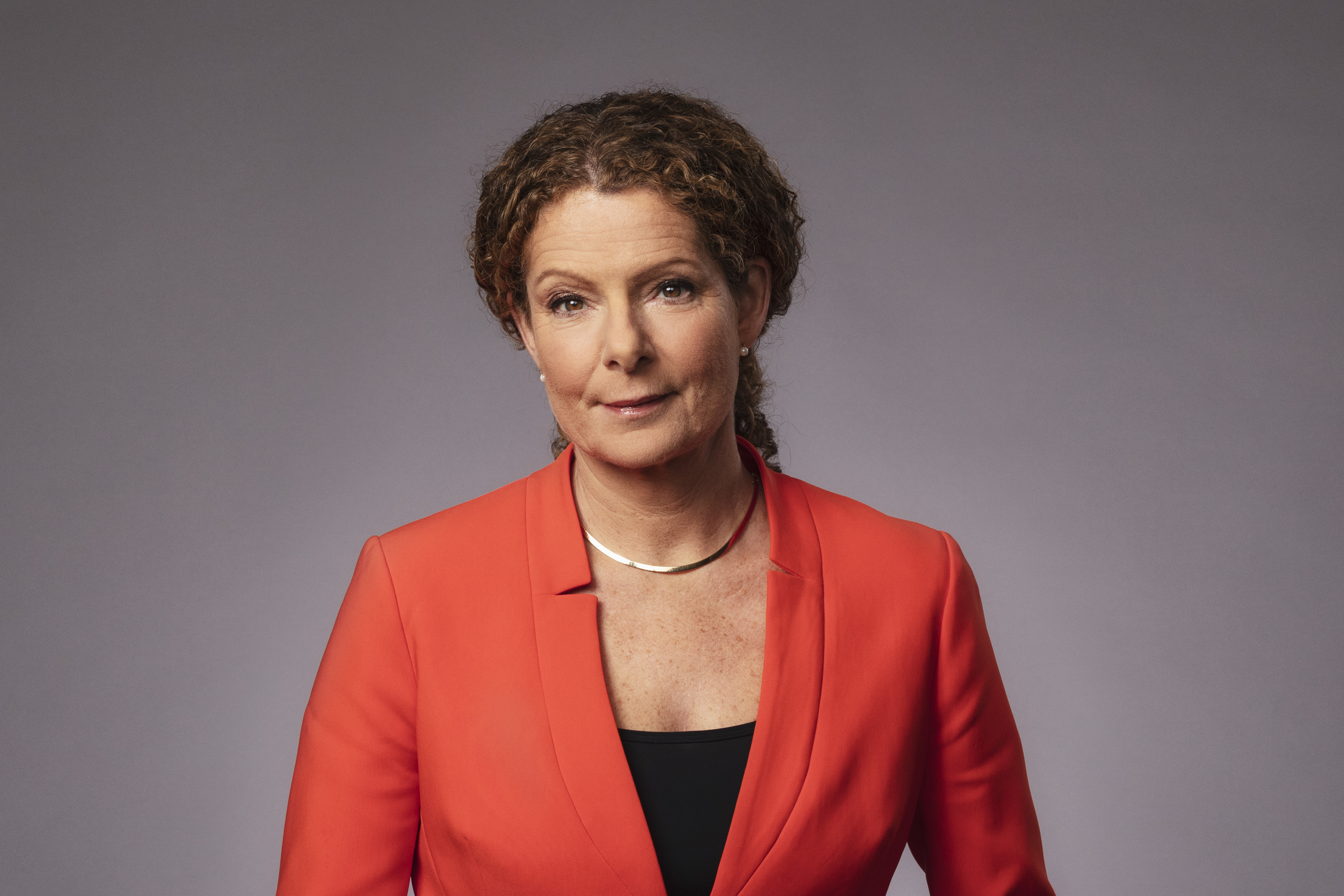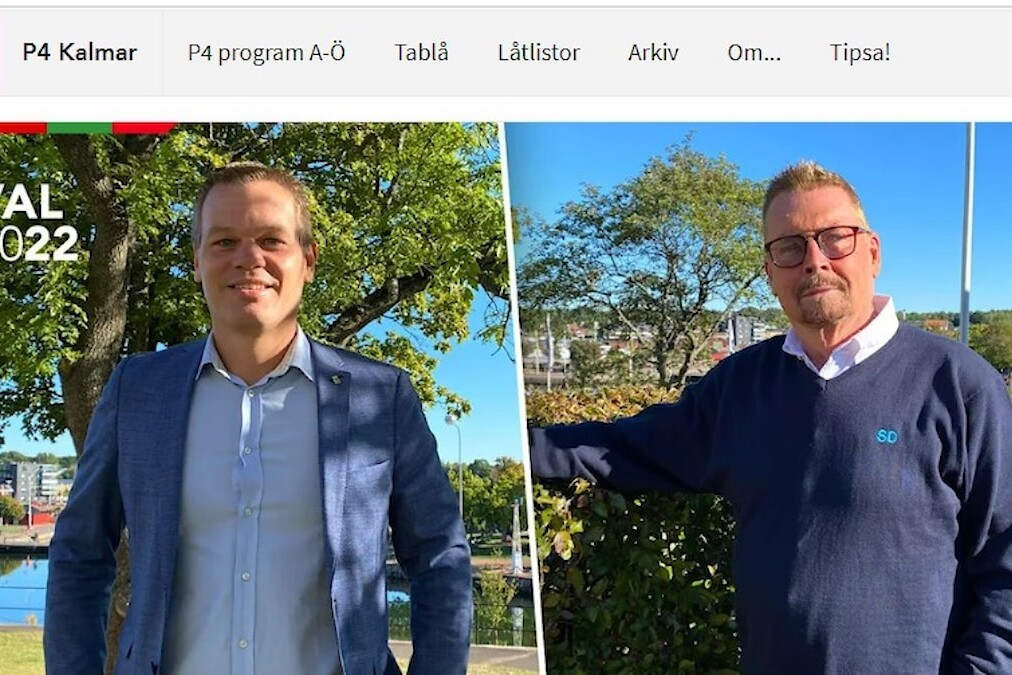Sweden: Directives for public service investigation unveiled
21st March 2023
“It is positive that the directives for the upcoming investigation highlight the unique role that Swedish Radio plays for Swedish preparedness,” said the CEO of Swedish Radio, Cilla Benkö.

The government of Sweden has published the directives for the investigation into public service media, with an emphasis on transparency, education, the wider media market, and preparedness.
The terms of reference for the investigation were published at the end of February. The investigation is the regular process of reviewing and renewing the broadcasting licences for Sweden’s public broadcasters, SR, SVT, and UR. Up until now the licences have stretched for six years but the next licences will run for eight years, from 2026-33, providing the government with a mechanism to determine the direction of public service media.
Read more: Sweden: Implications for public media after election
“Public service must remain independent – but needs to be adapted,” representatives from the government wrote in Dagens Nyheter, as they announced the directives.
Key aspects the committee will investigate:
- Education, as a point of difference for public media from the rest of the industry. “We therefore choose to emphasise the overarching goal of public education ambitions as well as the task of public service operations to deliver journalism for the entire country, in accordance with the mirroring mission that exists and which the investigation is also tasked with reviewing in its entirety. This applies both to what it meant for the programme activities and how the assignment should be designed going forward.”
- Public media’s contribution and role within Sweden’s wider media ecosystem. “We therefore want the investigation to review whether clarifications need to be made in the mission of the public service companies, so that the unique Swedish ecosystem with an independent public service and viable commercial media can be maintained and strengthened.”
- Preparedness in emergencies, and public media’s role as a “unifying force”. “The pandemic and the deteriorating security situation in Europe have shown the crucial role public services play in troubled times. In order for the public service to be able to fulfil its mission as a unifying force, especially in times of crisis and war, it is required that the operation enjoys a foundation of trust. Preparedness and security issues will be constantly present in the investigation’s work, including the task of analysing what the new security policy situation means for public service operations going forward.”
- Transparency and accountability to the public. “Tax money must be used in accordance with the conditions set and also in a resource-efficient manner. […] Therefore, one of the investigation’s tasks will be to review how the follow-up and review of the public service companies’ operations can become clearer and more transparent.”
Response from politicians and from public broadcasters
The political opposition criticised the directives, arguing that they were not sufficient enough on strengthening the independence of public service media. The Sweden Democrats – a far-right political party which is part of the government’s parliamentary majority, although are not represented in the government – had wielded a lot of influence in the directives, they claimed.
“What is not clear is how to strengthen the independence of SVT, SR and UR,” said Lawen Redar, a member of the opposition party, Social Democrats. “[P]arts that should be fundamental have been excluded and other parts have meant a political shift in how one perceives the mission of the public service companies.”
Another aspect which the investigation will examine is the need for the Review Board to review content, regardless of whether it is audio, video, or digital. CEO of Swedish Radio, Cilla Benkö, said it was a “reasonable” step, but sounded a warning: “At the same time, it is very important that the investigation stops right there and that it is not given room to go further in terms of review and sanctions.”
Ms. Benkö also welcomed the investigation into Swedish Radio’s preparedness mission. “It is positive that the directives for the upcoming investigation highlight the unique role that Swedish Radio plays for Swedish preparedness,” she said.
The CEO of SVT (Sweden’s national public television broadcaster), Hanna Stjärne, welcomed the particular emphasis on “technology-neutral” public broadcasting. “It is positive that the government wants to see a modernised mission for public service that is fully technology-neutral and with a preparedness mission that works for people’s digitised media habits even in the long term.”
However, she said for public service media to fulfil its obligations and mandate, “good financial resources are absolutely essential. This applies especially given that the major competition for Swedish media today is multinational giants that operate with a mainly Anglo-Saxon offering within a few genres.”
SVT is current undergoing a restructuring which will see changes in the cultural office, with ten programmes moving into five programme areas. There are concerns about how this might impact the overall output of cultural content, but the person in charge of the changes, Andreas Bedinger, said “it actually strengthens the supply, that is the honest intention.” The broadcaster is having to find savings of up to SEK 100 million, although it was denied this was the purpose of the restructure.
Listen toour podcast
Uncovering and exploring the biggest
issues facing public media
All-party committee appointed
Ms. Stjärne also welcomed the decision to have a committee representing every party in the Riksdag. Göran Hägglund, a former leader of the Christian Democrats, has been appointed the chair of the committee. “Public service plays an inalienable role in Swedish democracy … I think it is a difficult but very exciting task,” said Mr. Hägglund. Mr Hägglund will be supported by a committee staff. The committee will present its report by 30 April 2024 at the latest.
A shadow committee – with the purpose of advising and influencing the state committee – has also been established, and includes former executives from both private and public Swedish media. This committee has no official role and have a remit set by themselves.
The Public Media Alliance will continue to monitor the progress of the investigation.
“An important and clear step to protect journalism”
Meanwhile, the Swedish Government has progressed its proposals to increase the protection of journalists, by extending the punishments for perpetrators.
“It is completely unacceptable that anyone who engages in news broadcasting or performs another socially beneficial function is subjected to violence, threats or harassment,” said Minister of Justice Gunnar Strömmer. It is an attack not only on the individual, but by extension also on the democratic society. The government therefore wants to strengthen criminal law protection for these professional groups.”
Cilla Benkö described the proposals as “very gratifying and clearly confirms that free journalism is important for the whole of society. Voices must not be silenced. … The judiciary needs to have the right tools and resources to be able to prioritise and prosecute the crimes. The proposal to increase penalties is therefore absolutely necessary and my strongest hope is that the changes to the law, which are proposed to come into force on 1 August 2023, are such an important tool.”
Related Posts
2nd November 2022
Cilla Benkö: The fight for democracy and free speech is a life and death struggle
Swedish Radio's Cilla Benkö, reflects…
19th October 2022
Cilla Benkö: This is how public service media is strengthened
With a new government in place, Swedish…
29th September 2022
Sweden: Implications for public media after election
Elections in Sweden have seen gains for…
10th September 2022
Swedish Radio covers 310 local elections across the country
With Swedish elections taking place on…



